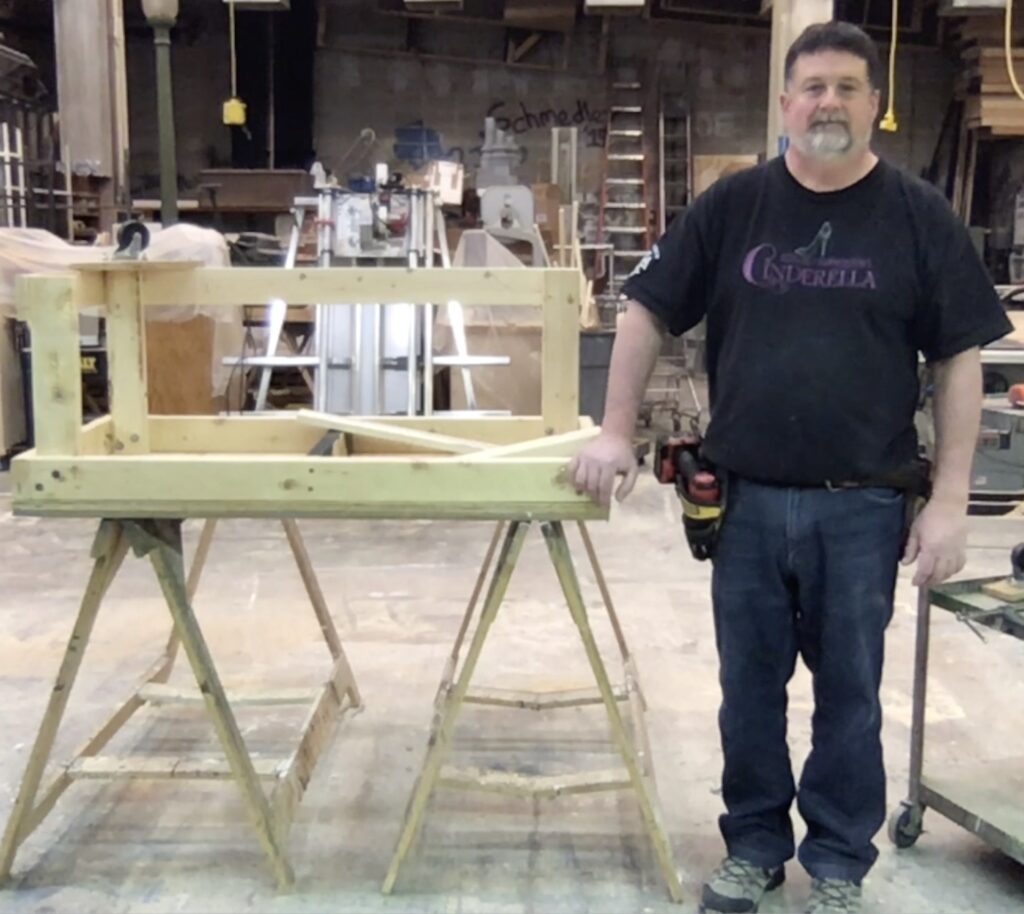Students know Drake Theater Arts Professor John Pomeroy as a teacher who enjoys heavy metal music and from time to time asks them the simple question, “How ya doin’?”
“When I get generic answers, I press them to learn if that is honestly how they are feeling,” said Pomeroy. “Nearly all of the time the students will go into more detail in their response.”
With the second part of spring semester transitioned to remote learning, Pomeroy kept the practice up by emailing students just to check in. He says the responses he’s received show that students appreciate being asked.
“My sincere hope is that as a people-oriented organization, the students and employees who compose the Drake family will be stronger and more supportive when this is over,” Pomeroy said.

Adapting his stagecraft class to remote learning required Pomeroy to develop novel solutions. Typically, students spend most of the class doing hands-on work with equipment and materials found in the expansive and professionally equipped Drake Scenic Studio. It’s a workshop that would be unrealistic for students to replicate while away from campus.
To adjust, Pomeroy provided pages of written research, visuals, and drawings for projects that students studied. He then recorded videos of himself doing the projects replete with verbal commentary. He purposefully made technical mistakes that students were subsequently challenged to correct him on in online quizzes.
For the final, he conducted live virtual interactive work sessions with each student. The students were tasked with walking him through a project by providing him exact instructions.
“I had tools and props at the ready,” Pomeroy said. “I did a lot of acting, purposefully doing things in a more difficult way or just wrong if their information was incomplete. I faked injury if they left out any safety regulations, pantomimed actions and materials, asked questions or made leading comments if they were straying from correct information.”
He said the outcomes were “high-quality” and included “a lot of laughter.”

